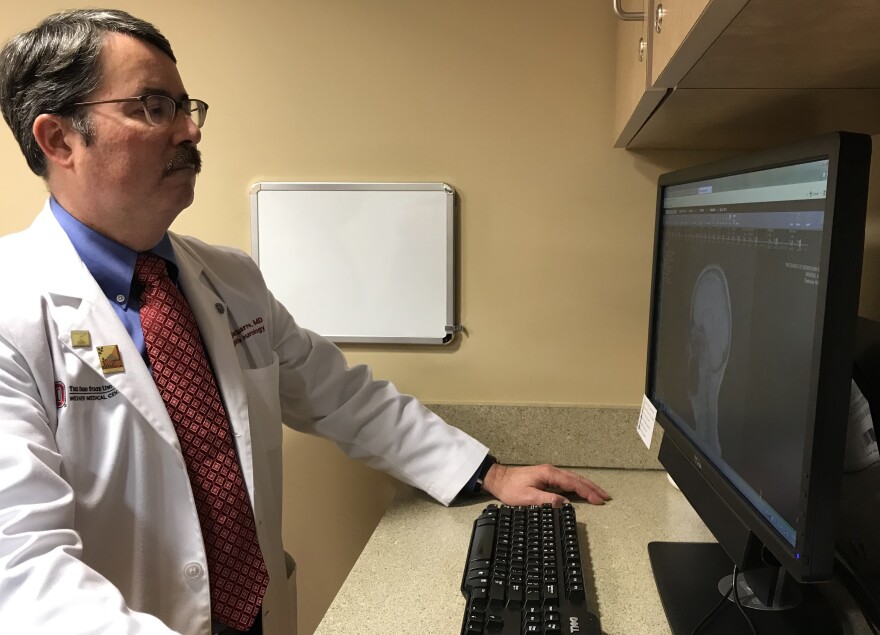While most treatments for Alzheimer's Disease focus on improving memory, Ohio State University researchers have conducted a study aimed at slowing the decline of problem solving and decision-making skills in these patients.
Mike Foley reports.
Researchers at Ohio State University’s Wexner Medical Center used what’s called a deep brain stimulation implant. It resembles a cardiac pacemaker device, except the pacemaker wires are implanted in specific regions of the brain rather than the heart. For the study, thin electrical wires were surgically implanted into the frontal lobes of three Alzheimer’s patients. Over an 18-month evaluation period, the cognitive and daily functional abilities of the study patients declined more slowly than a group not being treated with deep brain stimulation. Dr. Douglas Scharre directs the Division of Cognitive Neurology at the center’s Neurological Institute and co-authored the study. He says there are many treatments to help Alzheimer’s patients with memory, but nothing to improve judgement, decision-making and the ability to perform daily tasks.
“The purpose would be to help those circuits that modulate our behaviors, our focus and attention, and our problem-solving abilities. Modulating the frontal circuits and the frontal networks for these behavioral and executive functions is a very worthwhile endeavor to continue studying. We’re also looking at other ways to modulate and stimulate and/or inhibit in the right areas in the right parts of the brain to help with the symptoms of Alzheimer’s disease."
This pilot study found that DBS targeting frontal brain regions can reduce the overall performance decline typically seen in people with mild or early stage Alzheimer’s. Findings are published online in the Journal of Alzheimer’s Disease. Researchers also want to explore non-surgical methods to stimulate the frontal lobe.Alzheimer’s disease remains the most common form of degenerative dementia, affecting more than 5 million Americans. The Alzheimer’s Association says that number could reach 16 million by the year 2050.







